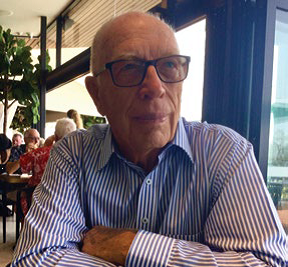Home > Online Magazine > Online Magazine: Edition 66 - Summer (Dec-Feb) 2020/21 > The Language of Social Distancing (by Graeme Perry)
The Language of Social Distancing
by Graeme Perry
 As participant researchers, observing from the isolation of 'down under' the soaring statistics of 'the covid-19 curve', is there awareness of emergent new knowledge? Any understandings from the shape symbol hiding the personal tragedy of increasing illness, suffering, death, anxiety, unemployment, isolation, despair and anger about constraints? Any learning from home experiences? From populations of either cultural allies or past foes, whether that be at war or sport?
As participant researchers, observing from the isolation of 'down under' the soaring statistics of 'the covid-19 curve', is there awareness of emergent new knowledge? Any understandings from the shape symbol hiding the personal tragedy of increasing illness, suffering, death, anxiety, unemployment, isolation, despair and anger about constraints? Any learning from home experiences? From populations of either cultural allies or past foes, whether that be at war or sport?
Weinglas (2020) references experts that "have observed people experiencing loneliness, anxiety, marital strife, lack of motivation and even guilt over not experiencing negative emotions" and their suggestion of "six strategies for maintaining wellbeing and even thriving during the pandemic and social distancing measures. These are: cultivating relationships, sticking to a routine, exercising, helping others, distracting ourselves, and finding meaning in our situation" (para.6).
Co-director of the University of Sydney's Brain and Mind Centre, Professor Ian Hickie (cited in Fitzsimmons, 2020) affirms the first strategy by asserting, "the language of 'social distancing' sends the wrong message - the true goal is physically distancing, while socially connecting" (para. 11) and qualifies contexts for exercise suggesting a natural location. "People report all the time, from a mental health point of view, how much better they feel when they are in contact with nature and they can exercise," he states. "It's not just about gym in your
home" (para. 26). Fitzsimmons (2020) notes "Hickie says there is a bonus - volunteering and helping others is 'fabulous' for your own mental health" (para. 35).
Psychiatrist Cross (cited in Fitzsimmons, 2020) "says it's important to keep perspective. "We're being asked to go to couch, not to war" (para. 8). Grant Blashki a practising GP and Beyond Blue's lead Clinical Advisor in advocating for all a 'mindfulness' approach suggests,
"Many people who practise mindfulness report a number of tangible benefits, such as: improved memory, better concentration, more flexibility in their thinking, greater ability to focus, less rumination (when the mind gets over chatty!), better stress management, and higher satisfaction with relationships and quality of life." (para. 2).
All of these 'emergent learnings' are components of the Wellbeing theme content of this and earlier issues of TEACH. Schools adopting an advocated wellbeing focus are preparing their students advantageously for all of the risks in life - including a world-wide epidemic.
What positives have come from the pandemic? Haski-Leventhal (2020) has suggested seven positive outcomes: a positive effect on the environment, peace choices, connectedness - community and social cohesion, online platforms, innovation - social and industrial adaptation, corporate (social) responsibility - demonstrated philanthropy, reimagined education at every level but most deservingly gratitude To our colleagues in education-teachers and parents-for your fortitude, our gratitude. To Him who sustains you yet, thankfulness and gratitude.
References
Blashki, G. (n.d.). Mindfulness is a real thing. Retrieved from https://www.beyondblue.org.au/personal-best/pillar/wellbeing/yesmindfulness-is-really-a-thing
Fitzsimmons, C. (April 5). How to stay sane during a pandemic. Sydney Morning Herald. Retrieved from https://www.smh.com.au/lifestyle/health-and-wellness/how-to-stay-sane-during-apandemic-20200402-p54gag.html
Haski-Leventhal, D. (April 27). Seven positive outcomes of COVID-19. The lighthouse. Macquarie University. Retrieve from https://lighthouse.mq.edu.au/article/april-2020/seven-positiveoutcomes-of-covid-19
Weinglass, S. (2020, April 26). Six strategies to stay sane, even thrive, amid COVID-19 and social distancing. The Times of Israel, para 6. Retrieved from https://www.timesofisrael.com/6-strategies-for-staying-sane-even-thriving-amid-covid-19-andsocial-distancing/
Home > Online Magazine > Online Magazine: Edition 66 - Summer (Dec-Feb) 2020/21 > The Language of Social Distancing (by Graeme Perry)
Copyright © 2020 Thornleigh Seventh-day Adventist Church
